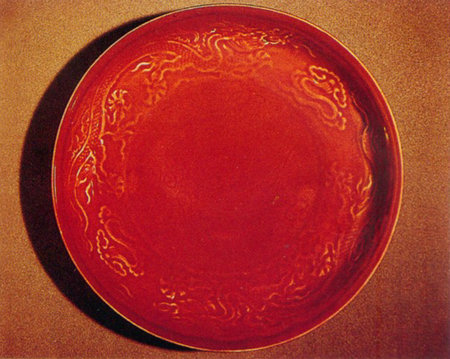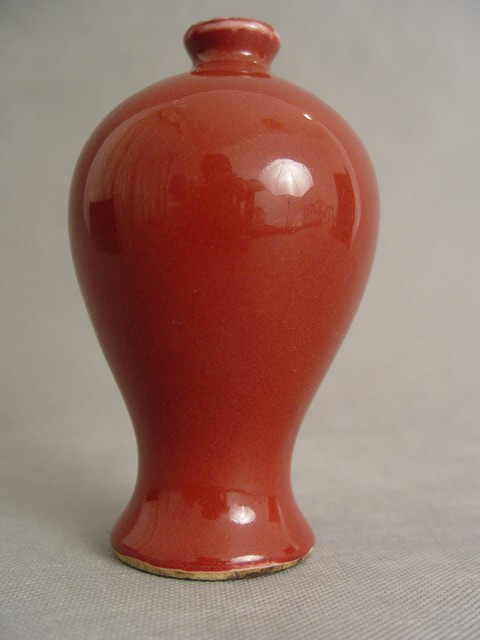
Porcelain with red under glaze is distinctively different from other Chinese ceramic styles, with very flamboyant, lively, and intense colors. In traditional Chinese culture, the color red represents joy, happiness, and auspiciousness. This combination of form and meaning has made red under glaze porcelain very popular and demand has always been greater than supply.
 |
|
Jihong Plate during the Hongwu Reign of the Ming Dynasty |
"If you want to go broke, make red glaze porcelain" is a popular saying among porcelain makers, because making this kind of porcelain is very complicated and costly. The expensive materials needed and the complicated technique used to glaze the base are the two major obstacles to making red under glaze porcelain. When the porcelain is fired, temperature and time control is also essential to prevent the glaze from changing color or breaking.
 |
|
Jihong plum blossom bottle in the Qing Dynasty |
Because of the extreme difficulties in producing this kind of porcelain, the skills were once lost, and were only revived very recently with the help of modern technology.
The origins of red under glaze porcelain
Red-glazed porcelain was invented as the result of a happy accident. In the Tang Dynasty (618-907), bronze was widely used in Changsha kilns to make porcelain green, and it was discovered that different firing temperatures made some porcelain red.
The technique was improved in the Song Dynasty (960-1279), when large quantities of porcelain with red under glaze were produced in Jun kiln in Henan Province. However, the craftsmen's skills were not yet very advanced and there were usually some other colors in the red under glaze.